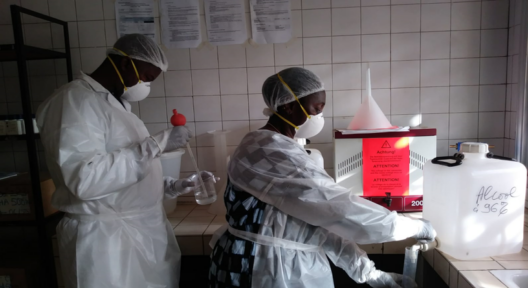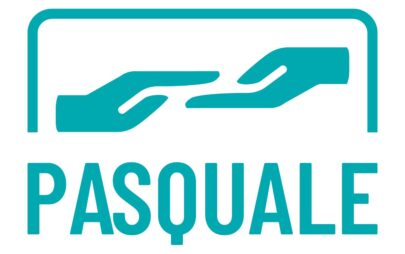PASQUALE-3
Partnership to Improve Patient Safety and Care

Context
Health care facilities around the world are increasingly threatened by the spread of health care-associated infections and antibiotic resistance, which greatly endanger the safety of patients and place an additional burden on national health care systems. In Guinea in particular, the health system is challenged by numerous socio-economic factors and a high burden of disease with significantly higher morbidity and mortality due to insufficient infection prevention and control (IPC), thus increasing the risk of health care-associated infections. Through the PASQUALE project, RKI and the regional hospital in Faranah are continuing their long-term partnership to improve patient safety and quality of care by strengthening IPC capacities. The activities build on the achievements of the first phase, in which local production of alcohol-based hand rub was established and medical staff were trained. Working with local and national governmental institutions, the project now plans to use a holistic and participatory approach, including the roll-out of local production and a train-the-trainer approach, to improve patient safety and quality of care in the entire region of Faranah.
Objective
Strengthening of health system capacities in the field of infection prevention and control (IPC) at the local and regional levels in Guinea.
In Cooperation with
- Ministry of health, Direction Régional de la Santé (DRS), Guinea
- Ministry of health, Direction Préfectorale de la Santé (DPS) Faranah Region, Guinea
- Hôpital Régional de Faranah (HRF), Guinea
- Centre de Recherche de Formation en Infectiologie (CERFIG), Guinea
- Satellite Medicine (SATMED), Luxemburg
Thematic priorities
Facts
Activities
-
Training and competence development
Conducting training on IPC.
-
Research and provision of evidence
Supporting applied mixed-method research to identify barriers to and catalysts for the sustainable implementation of IPC; conducting a pilot study on postoperative infections after caesarean sections.
-
Networking and cooperation
Strengthening networking and coordination of regional and supra-regional IPC activities through workshops and the establishment of a regular exchange among relevant actors.
-
Capacity development
Developing and implementing a coordinated and context-specific multimodal strategy for IPC capacity-building.
